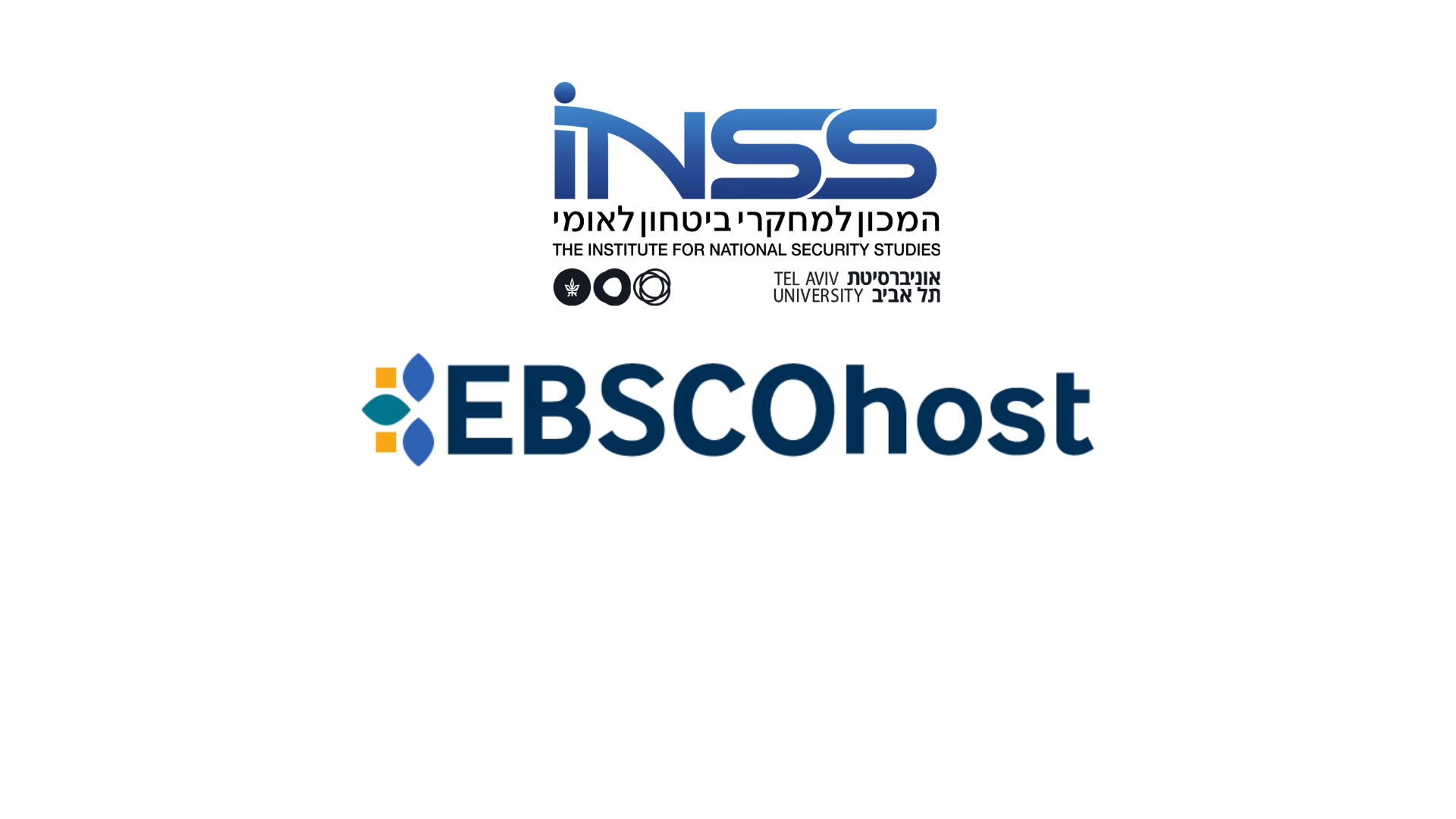Strategic Assessment, a multidisciplinary and interdisciplinary journal on topics related to Israel’s national security and Middle East strategic issues, was launched in 1998 and is published quarterly in Hebrew and English by the Institute for National Security Studies (INSS) at Tel Aviv University. The journal is recognized by the Council for Higher Education and appears in the list of journals for the budgeting model, and is also distributed by the EBSCO to 132,000 libraries worldwide and to databases of leading journals in the world. Strategic Assessment serves as a platform for original research on a spectrum of issues relating to the discipline of national security. The purpose of the journal is to spark and enhance an informed, constructive debate of fundamental questions in national security studies, using an approach that integrates a theoretical dimension with policy-oriented research. Articles on topics relating to Israel, the Middle East, the international arena, and global trends are published with the goal of enriching and challenging the national security knowledge base.The current era has seen many changes in fundamental conventions relating to national security and how it is perceived at various levels. As national security research evolves, it seeks to adjust to new paradigms and to innovations in the facets involved, be they technological, political, cultural, military, or socio-economic. Moreover, the challenge of fully grasping reality has become even more acute with the regular emergence of competing narratives, and this is precisely why factual and data-based research studies are essential to revised and relevant assessments.
The editorial board encourages researchers to submit articles that have not been previously published that propose an original and innovative thesis on national security with a broad disciplinary approach rooted in international relations, political science, history, economics, law, communications, geography and environmental studies, Israeli studies, Middle East and Islamic studies, sociology and anthropology, conflict resolution, or additional disciplines.
In the spirit of the times, Strategic Assessment is shifting its center of gravity to an online presence and availability. While INSS will continue to print issues on a quarterly basis, articles approved for publication, following the review and editing process, will be published in an online version on the journal’s website in the format of “initially published online,” and subsequently included in the particular quarterly issues.
Types of Articles
Strategic Assessment will publish articles in five categories:
Research Forum – academic articles of a theoretical and research nature on a wide range of topics related to national security, of up to 10,000 words in English (including APA7-style footnotes). All articles are submitted for double blind peer review. The articles should be accompanied by an abstract of 100-120 words, a list of keywords of up to ten words, and a short bio by the author.
Book Reviews – book reviews of 800-1,500 words in English on a wide range of books relating to national security (including APA7-style footnotes).
Professional Forum – panel discussions on a particular topic, or in-depth interviews, of 2,000-3,500 words in English (including APA7-style footnotes).
Academic Survey – a survey of 1,800-3,000 words in English of the latest professional literature on a specific topic relating to national security (including APA7-style footnotes).
Editorial Board
Dr.
Gallia Lindenstrauss
Editor
Dr. Raz Zimmt
Editor
Dr.
Ela Greenberg
Associate Editor
Revital Yerushalmi
Coordinator
Michal Semo-Kovetz,
Tel-Aviv University Graphic Design Studio
Graphic Design
b-way digital
Logo Design
Orniv Ltd.
Printing
Editorial Board
Prof.
Manuel Trajtenberg
Chairman of Editorial Board
Prof.
Dmitry Adamsky
Prof.
Avi Ben-Zvi
Prof.
Azar Gat
Prof.
Eytan Gilboa
Prof.
Tamar Hermann
Prof.
Eviatar Matania
Prof.
Benny Miller
Prof.
Itamar Rabinovich
Prof.
Shimon Shamir
Prof.
Asher Susser
Prof.
Eyal Zisser
Dr.
Yoel Guzansky
Dr. Anat Kurz
Ambassador, former Mossad Director, Efraim Halevi



